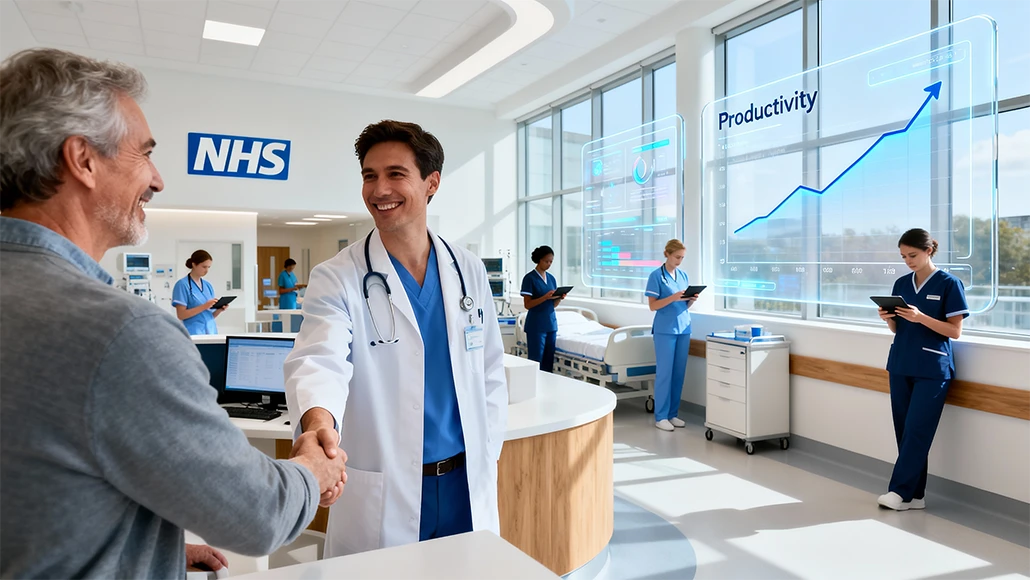As 2025 draws to a close, it is time we look into the latest developments in health and care that are catching the eye of many.
Data has gone on to reveal that the NHS productivity growth has strengthened recovery. This new data has ascertained that the NHS has gone beyond its productivity target by way of attaining a rise of 2.4% between April 2025 and July 2025 as compared to the same period in 2024, thereby outperforming the long-term average and also building on a 2.7% increase from 2024.
Gains arise due to same-day discharges, shorter hospital stays, better technology usage, lower agency spending, and also extended service hours.
Wes Streeting, the health secretary, said that these reforms go on to show that the NHS is indeed becoming much more efficient as well as sustainable while at the same time ensuring to maintain universal, free healthcare.
Besides this, a new productivity index is also going to track the local performance so as to make sure ongoing enhancements go on to benefit the patients directly.
In addition to this, one of the latest developments in health and care is that the MHRA is looking to overhaul its rare diseases rule book. The Medicines and Healthcare Products Regulatory Agency – MHRA has already gone on to commit to overhauling the rule book when it comes to rare disease therapies. In a paper that was published recently, the regulator underscored the small proportion of rare diseases having approved treatments and also long diagnostic pathways.
The new rulebook is going to be published in 2026 and looks forward to speeding up the path when it comes to rare therapies, right from discovery to delivery.
Julian Beach, the MHRA executive director of healthcare quality and access, said that he indeed hoped the paper goes on to stand as a stamp for all those who are affected due to the rare disease that is being heard about and are well prepared to take some bold action so as to speed up the path right from discovery to delivery, while simultaneously maintaining stringent standards when it comes to safety.
Trusts indeed need help to withstand the AI noise, which is another piece of the latest in health and care development that has cropped up. NHS Providers, along with IBM, have gone on to set up an AI productivity center in order to help the trusts save money in case of adopting new technology.
Apparently, the membership group for NHS trusts, which went on to formally agree to go ahead and merge with the NHS Confederation recently, happens to be working alongside a global IT firm in order to speed up the uptake of AI throughout all the providers and also build a level of understanding among the senior leaders.
Interestingly, these masterclasses for members are also going to cover shared learning in terms of adoption, data privacy along with security, and also the responsible usage of AI.
Daniel Elkeles, NHS Providers’ chief executive, said that trusts do require the much-needed help to overcome all the noise that is surrounding AI. Right from seeking questions about what makes the highest impact when it comes to enhancing productivity as well as risk management to safe and right adoption, which in a way tangibly enhances the quality of care as well as staff experience, that’s where one can actually step in and go ahead and support the members.
Elkeles added that they have to get much better in the NHS when it comes to targeting its use at processes as well as tasks, which in a way enable them to unlock productivity, which is either cash releasing or helps more patients to get treated alongside the existing resource.
In yet another major news coming in, an AI tool looks to customize the prostate cancer treatment, as the NHS is launching a £1.9 million study that is led by the University of Oxford in order to test an AI tool named Artera AI, which evaluates the prostate biopsy and goes on to recommend the most ideal treatment, hence decreasing the unnecessary or even, for that matter, missed interventions.
As per the Telegraph, the research is going to be conducted throughout the three NHS trusts and will compare AI forecasts with the real-time patient outcomes, hence aiming to prove its precision before making use of it in clinics in order to guide treatment decisions as far as new patients are concerned.
Ashley Dalton, the Public Health Minister, has gone on to call the study a huge step forward, opining that it shows how investing within the gamut of digital technology can actually transform lives, diagnose the situation earlier, treat with more effectiveness, and also enhance the patient experience.
Another piece of news that is doing the rounds is related to unregulated baby scan clinics proving to be safety concerns. It is well to be noted that the Society of Radiographers has gone ahead and warned that there are some private scan clinics that happen to be putting mothers as well as babies at risk by letting their unqualified staff perform ultrasounds, which has, by the way, led to cases of serious misdiagnosis.
BBC News has reported that while there are many clinics that actually follow proper benchmarks, the growth when it comes to unregulated high-street souvenir scan services has gone on to lead to calls for the sonographer to become a much-protected job title, thereby ensuring that only qualified and, of course, registered professionals can use it.
Interestingly, the Care Quality Commission and Department of Health happen to be reviewing regulations post the ongoing issues with unsafe advice and poor staff training, as well as weak oversight, which were found in a few private clinics.
With this we wrap up the series of the latest developments in health and care, and we certainly look forward to bringing more.



















